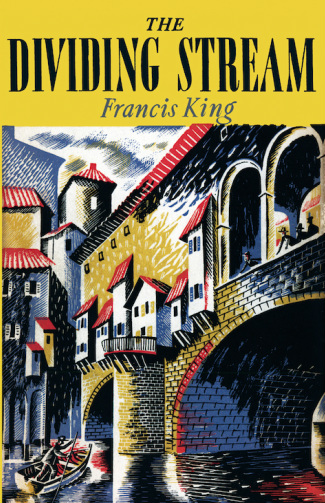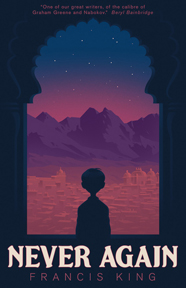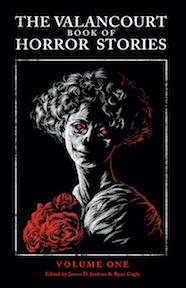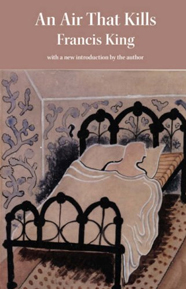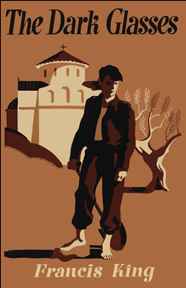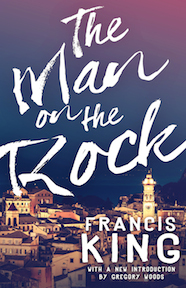|
BOOK DETAILS
Trade paper ISBN-13: 978-1939140692 List Price: $17.99 U.S. Pages: 306 Published: 2014 |
The Dividing Stream (1951)
Francis King With a new introduction by Paul Binding Winner of the Somerset Maugham Award Due to copyright restrictions, this title is only available to customers in the U.S. and Canada.
Book Description
In Florence on business, Max Westfield has brought his wife and children with him to make a holiday of it. But while shrewdly perceptive in financial matters, Max is completely blind to the passions and tragedies that soon begin to surround him. His wife despises him and is brazenly having an affair with a cynical expatriate, his secretary wants him badly and dreams of accompanying him back to England, and his teenage son has fallen in love with a working-class Italian youth. With what Paul Binding calls his “darkly penetrative vision of existence,” Francis King weaves these narrative threads into a complex and gripping story of isolation, despair, and death beneath the intense glare of the Tuscan sun. Francis King (1923-2011) received favourable reviews for his first three novels, but it was his fourth, The Dividing Stream (1951), winner of the Somerset Maugham Award, that secured his reputation internationally as one of the foremost young writers of his generation. This edition, the first in more than 60 years, includes a new introduction by novelist and critic Paul Binding and a reproduction of the original dust jacket art by Leslie Wood. |
reviews
“An achievement by a writer completely master of his technique, and I strongly recommend it.” – C.P. Snow, Sunday Times
“Mr. King has something to say in this novel, and he knows how to say it.” – John Betjeman, Daily Telegraph
“Voluptuously readable ... an impressive piece of work.” – New Statesman
“I find it rare, and indeed astonishing. It contrives ... to exercise a continuous fascination.” – Lionel Hale, The Observer
“It reaches a quite exceptional level of imaginative intensity.” – Times Literary Supplement
“Mr. King has something to say in this novel, and he knows how to say it.” – John Betjeman, Daily Telegraph
“Voluptuously readable ... an impressive piece of work.” – New Statesman
“I find it rare, and indeed astonishing. It contrives ... to exercise a continuous fascination.” – Lionel Hale, The Observer
“It reaches a quite exceptional level of imaginative intensity.” – Times Literary Supplement
ALSO AVAILABLE THROUGH ONLINE RETAILERS
|
EBOOK
Kindle US |
MORE TITLES BY THIS AUTHOR
AUTHOR BIOGRAPHY
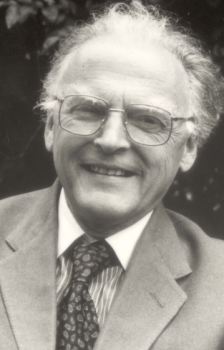
Francis King was born in Switzerland in 1923 and spent the first eight years of his life in India before being sent back to England to a boarding school. A bright student, he earned a Classics scholarship to Balliol College, Oxford, but later changed to English literature, and published his first novel, To the Dark Tower (1946) while still an undergraduate. This novel, and his next two, Never Again (1947) (an autobiographical novel based on King’s childhood) and An Air That Kills (1948), were published by Home and Van Thal, which then went bankrupt, but not before King had established himself as a promising young novelist.
Beginning in 1949, King worked for the British Council and travelled extensively, including to Italy, Greece, and Japan, all of which would provide settings for his novels. His next book, The Dividing Stream (1951), set in Florence, won the Somerset Maugham Award and cemented King’s status as one of the bright young literary stars of his generation. During the 1950s and 60s, King published a string of excellent works, including The Dark Glasses (1954), The Man on the Rock (1957), The Widow (1957), The Custom House (1961), and The Waves Behind the Boat (1965).
In 1966, King resigned from the British Council to devote himself to writing full-time and supplemented his income by writing book and theatre reviews and working as a literary adviser to the publishing house of Weidenfeld & Nicolson.
He continued to write prolifically, and notable highlights include the gay-themed novel A Domestic Animal (1970), which drew a threat of a libel action, The Action (1978), which narrowly missed the Booker shortlist, and Act of Darkness (1983), which, unlike many of King’s books—which were always well-received critically—was relatively successful commercially.
King went on writing until his death in 2011, making the Booker longlist with The Nick of Time (2003) and publishing a revised 60th anniversary edition of An Air That Kills with Valancourt Books in 2008; his final novel, Cold Snap, appeared in 2010.
Beginning in 1949, King worked for the British Council and travelled extensively, including to Italy, Greece, and Japan, all of which would provide settings for his novels. His next book, The Dividing Stream (1951), set in Florence, won the Somerset Maugham Award and cemented King’s status as one of the bright young literary stars of his generation. During the 1950s and 60s, King published a string of excellent works, including The Dark Glasses (1954), The Man on the Rock (1957), The Widow (1957), The Custom House (1961), and The Waves Behind the Boat (1965).
In 1966, King resigned from the British Council to devote himself to writing full-time and supplemented his income by writing book and theatre reviews and working as a literary adviser to the publishing house of Weidenfeld & Nicolson.
He continued to write prolifically, and notable highlights include the gay-themed novel A Domestic Animal (1970), which drew a threat of a libel action, The Action (1978), which narrowly missed the Booker shortlist, and Act of Darkness (1983), which, unlike many of King’s books—which were always well-received critically—was relatively successful commercially.
King went on writing until his death in 2011, making the Booker longlist with The Nick of Time (2003) and publishing a revised 60th anniversary edition of An Air That Kills with Valancourt Books in 2008; his final novel, Cold Snap, appeared in 2010.

